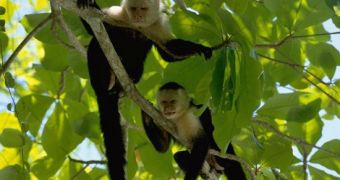Researchers writing in the journal Science argue that biodiversity has very little chances to survive in fragmented rainforests.
More precisely, they say that, contrary to what some might think, most animal species cannot survive on the long run in so-called forest islands that are created whenever fairly large forested areas get felled and chopped up.
In their paper, the researchers say that, while monitoring such forest islands in Thailand and the biodiversity they house, they found that many of the animal species inhabiting them nearly went extinct just 20 years after the rainforest got fragmented in order to accommodate for a hydroelectric reservoir.
“It was like ecological Armageddon,” maintains study leader Luke Gibson from the National University of Singapore, as cited by EurekAlert.
“Nobody imagined we'd see such catastrophic local extinctions,” the researcher further comments on his and his colleagues' findings.
What Luke Gibson means is that, within said time frame, most of the mammals living in these forest islands in Thailand came dangerously close to extinction. There is little doubt that, in time, other species will share their fate.
By the looks of it, these mammals experienced a sudden and dramatic drop in their population not only due to the destruction of their natural habitats, but also because an invasive species, i.e. the field rat, was quick to set up camp in the disturbed rainforest.
“There seemed to be two culprits. Native mammals suffered the harmful effects of population isolation, and they also had to deal with a devastating invader – the Malayan field rat,” says William Laurance of James Cook University in Australia.
In light of these findings, the researchers urge that high officials roll out measures intended to protect large patches of land rather than fairly small ones.
As Luke Gibson puts it, “The bottom line is that we must conserve large, intact habitats for nature. That's the only way we can ensure biodiversity will survive.”

 14 DAY TRIAL //
14 DAY TRIAL //